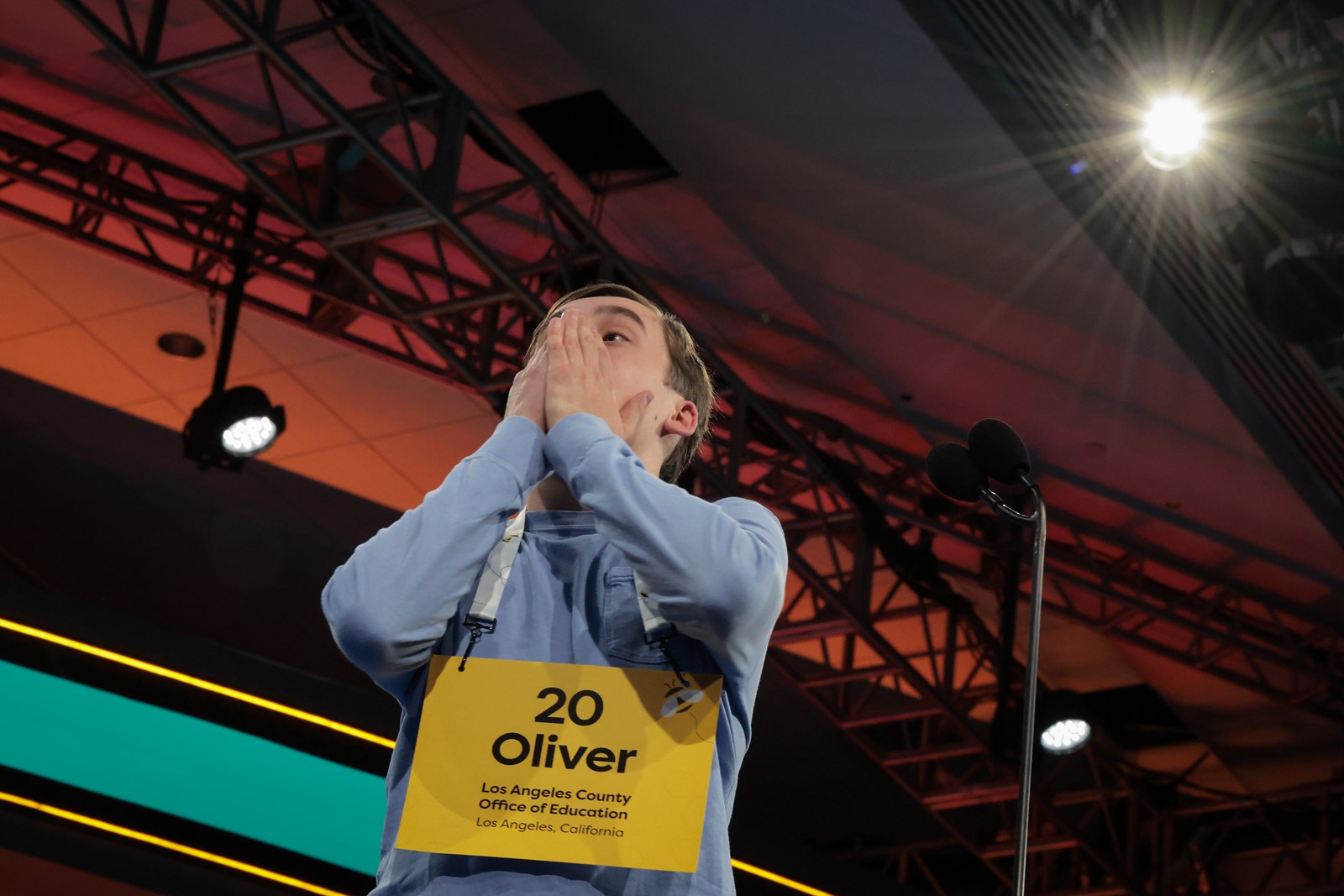
(with extreme care).
Spell “polymorphism.”
Pass a written spelling test.
Answer the question: “Something described as toilsome is:” (characterized by tiring work).
Spell “becquerel.
Also in the 10th round, Hannah Kuo, 12, of Granite Mountain Charter School in Lucerne Valley ended her Spelling Bee journey when she failed to correctly spell “bromyrite.” In the ninth round, she correctly spelled “ophion.”
In the sixth round, Victoria Li, 11, of Philistine Rondo School of Discovery in Eastvale incorrectly spelled “ablegate.” To get there, she correctly answered the fifth-round vocabulary question, “What does it mean to gesticulate?” (to move the body or limbs when talking).
Southland students who began the competition included Sydney Tran, 13, of El Rancho Charter School in Anaheim; Kamya Balaji of Notre Dame Academy in Rancho Park; and Angeline Wang, 11, of Caryn Elementary School in Rancho Cucamonga.
Spellers who made it to the quarterfinals — including Oliver, Hannah and Victoria — receive a $100 gift card and a commemorative pin from the Scripps National Spelling Bee.
All the spellers receive a prize package, including bee souvenirs and an official certificate of participation from the dictionary publisher Merriam-Webster, a one-year subscription to Merriam-Webster Unabridged Online, a 2025 U.S. Mint proof set and a one-year subscription to Britannica Online Premium News-O-Matic.
Tuesday, 99 spellers advanced to the quarterfinals after scoring high enough on the third-round written test administered to contestants who had correctly spelled their first-round word correctly and provided the correct answer to the second-round vocabulary question.
The scores of the written test were not released. Those who scored at least 13 on the test advanced to the quarterfinals, bee organizers said. The maximum score was 35.
Under bee rules, spellers were grouped by their number of correct answers. The number of spellers advancing was determined by identifying the group whose minimum score resulted in as close to 100 quarterfinalists as possible.
The field was 165 entering the written test.
The bee began with spellers from all 50 states, the District of Columbia, Puerto Rico, Guam, the U.S. Virgin Islands, Department of Defense schools and five nations outside the United States: the Bahamas, Canada, Ghana, Kuwait and Nigeria.
There were 42 spellers eliminated in the first round and 18 in the second.
The bee is limited to students who have not have passed beyond the eighth grade or an international equivalent on or before Aug. 31 and who were born on Sept. 1, 2009, or later.
The winner will receive $50,000 from the Scripps National Spelling Bee, $2,500 and a reference library from Merriam-Webster; $400 in reference works from Encyclopedia Britannica, including a 1768 Encyclopedia Britannica replica set; and a three-year membership to Britannica Online Premium.
This is the 100th anniversary of the first national spelling bee, which was held on June 17, 1925, when the Louisville Courier-Journal invited other newspapers around the country to hold spelling bees and send their champions to Washington, D.C.
This is the 97th edition of the bee. There were no bees in 1943, 1944 and 1945 because of World War II and in 2020 because of the coronavirus pandemic.
Six Californians have won the national bee.
Staff writer Steven Rosenberg and City News Service contributed to this report.


 PREVIOUS ARTICLE
PREVIOUS ARTICLE
